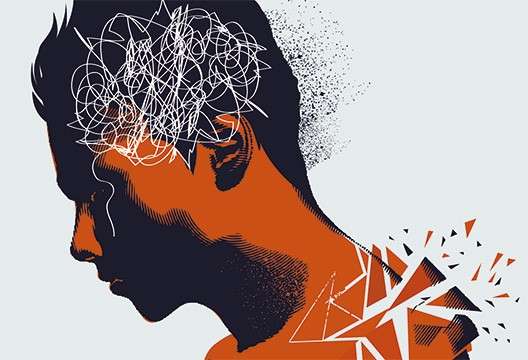
By Chris Faulkner
In reaching out to invite men to attend his first Rock Solid Healing meeting, Javale Lomax would tell his co-workers at Shearer’s, “I just want you to know you’re appreciated.”
Lomax said many men don’t feel appreciated, and society has conditioned men to not express their feelings about that or anything else, for that matter.
That’s why he started Rock Solid Healing as a bi-weekly gathering of just men, with the idea that men can feel free to open up about their mental and emotional struggles.
“Men get silenced, more quiet as they get older,” Lomax said. “I wish men could be more open like women.
Because of the way society has taught, men are supposed to be masculine, not show emotions.
“It’s the reason why women outlive men,” Lomax said.
The first meeting was July 17, and will run every other Thursday from 5 to 6:30 p.m. They met at Crapo Park, but Lomax is working on getting a church to host his meetings, so he’ll post the location on his Rock Solid Healing Facebook page.
Five men showed up, but Lomax expects that number to grow as word of mouth travels.
As for Lomax’s outreach to his co-workers, he said that some of them, after hearing the affirmation, told him, “I needed to hear that.”
His Crisis
Lomax has his mental health struggles to deal with, and he went to a local therapist.
Lomax said he has good insurance, but the mental health treatment wasn’t covered, and it cost him $300 for the one visit.
“I recently reached out to the Burlington Community Page (on Facebook) to find therapy for men that would be free,” Lomax said.
“I was in a crisis.” But no such services were available.
Then he began hearing from other men who said that such a service was needed.
Then women reached out, saying their husbands and/or sons could use the help.
There are suicide hotline numbers, “but that’s probably someone far away,” Lomax said. There’s no personal connection.
“I realized I could get the ball rolling,” he said.
Some programs work to help people break addictions, but Lomax wants to focus strictly on the mental health issues.
He struggles with anxiety disorder and post traumatic stress disorder, and hopes to reach others with those or similar issues.
“I learned that venting to a stranger helped more than taking medication and going to a therapist,” Lomax said.
Father-Son Rift
Lomax said he and his father have never been close.
Not long ago, Lomax attended a funeral for one of his father’s friends where a photo of a group of men was displayed.
“The only two still living were my dad and Shane McCampbell. Seeing that picture really struck a nerve,” Lomax said. “Our relationship is not good at all.”
His father left during McCampbell’s eulogy. “I followed him, and I broke down,” Lomax said, telling his father, “We have to get this relationship better. The past is the past.”
Now, Lomax and his father connect more often.
“We check on each other,” he said.
Lomax is enrolled at Southeastern Community College to become a therapist. He considers himself a motivational speaker at the moment.
His weekly men’s group will be a therapy session, not looking to diagnose someone as a psychologist or psychiatrist might.
“They said it takes a village to raise a kid,” Lomax said. “It takes a village to raise an adult.”
The added benefit Lomax sees is that this is more than just improved mental health.
“Without good mental health, you will not be good physically,” he said. “People who are sick physically, 9 out of 10, they’re not good mentally. There’s something they need to get off their chest. They need to ‘level up.’ ”